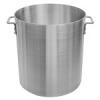This is a tricky one, Matthew, because as you said, the concentrates are being used as flavourings in supplements, not as major ingredients of food products.
You're right that there is a long history of food fraud in juice concentrates, so you're right to say fraud is likely to occur.
Controversially, you could also argue (perhaps, I don't know enough about how the concentrates are used to say for sure), that any fraud is unlikely to have a food safety impact on consumers. And this could be used to reduce the overall vulnerability to medium risk, rather than high risk, which would reduce the amount of testing needed in your mitigation plan.
For example (and again, I don't have enough informaton about your situation to say you should do this), a manufacturer might include comments in their vulnerability assessment like this:
(a) fraud in fruit juice concentrate typically takes the form of dilution with water, added exogenous sugars, undeclared flavour additives or use of wrong (cheaper) fruit*,
(b) therefore any frauds that are likely to occur are unlikely to make the concentrate unsafe and
© the quantity of the concentrates in the final product is low enough (perhaps) that there would be minimal impact on the safety and quality of the finished product if the concentrates were fraud-affected.
Again, I'm not saying that you don't need to test, and I couldn't guarantee that any SQF auditor would be okay with this, but if the impact of fraud is expected to be low you may be able to justify a lower vulnerability rating, for example by using a likelihood versus severity matrix. With a lower vulnerability rating for the ingredient you can implement a less rigorous mitigation plan with less frequent testing.
Re. mitigations, definitely include a background check on your supplier, as that is a low cost, one-off job. It involves exploring whether they have been involved in any questionable trading in the past. And, as other respondents said, definitely don't rely on statements from your supplier that they are doing the right thing.
*Also, be wary of any concentrate for which colour impacts the quality or price of the material, as it would be tempting for a supplier to add undeclared colouring agents, and that WOULD have a potential food safety impact. Likewise for undeclared flavour compounds, which could impact the truthfulness of any claim you make on your finished product, such as 'natural' or 'no artifical flavours'.
There are a lot of ifs and buts in this post (food fraud is tricky!), but I hope it provides some useful insights,
Karen


















